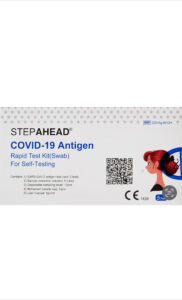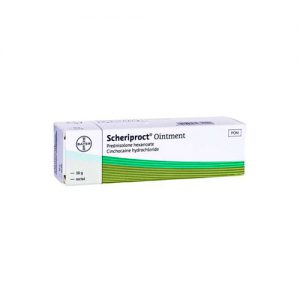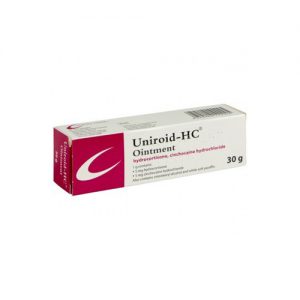Showing 3 products
Pagination
What are haemorrhoids?
Haemorrhoids, (also commonly known as piles) affect more then 50% of people at some point in their lives. They are lumps that form inside or around the anus (bottom). These lumps often get better on its own after a few days, but can sometimes bleed and cause pain and discomfort when they appear.
What causes Haemorrhoids and what are the risk factors?
Haemorrhoids (piles) are swollen blood vessels that occur with no clear cause.
Haemorrhoids can be passed on genetically from parent to child, so if your parents had haemorrhoids, you’re more likely to get them.
Consistent heavy lifting, being obese, or having other constant strain on your body can increase your risk of haemorrhoids.
Standing too much without taking a break to sit can cause haemorrhoids to develop.
Consistent anal sexual intercourse and diarrhoea can also increase your risk of haemorrhoids.
You’re also more likely to develop haemorrhoids if you’re pregnant.
When the uterus enlarges, it presses on the vein in the colon, causing it to bulge.
What are the symptoms of haemorrhoids?
Symptoms of piles include:
- Bright red blood after you poo
- Itchy anus
- Feeling like you still need to poo after going to the toilet
- Slimy mucus in your underwear or on toilet paper after wiping your bottom
- Lumps around your anus
- Pain around your anus
How are they treated?
How you can treat or prevent piles:
Do
- Drink lots of fluid and eat plenty of fibre to keep your poo soft
- Wipe your bottom with damp toilet paper
- Take paracetamol if piles hurt
- Take a warm bath to ease itching and pain
- Use an ice pack wrapped in a towel to ease discomfort
- Gently push a pile back inside
- Keep your bottom clean and dry
- Exercise regularly
- Cut down on alcohol and caffeine (like tea, coffee and cola) to avoid constipation
What should you not do if you have haemorrhoids (piles)?
- Do not wipe your bottom too hard after you poo
- Do not ignore the urge to poo
- Do not push too hard when pooing
- Do not take painkillers that contain codeine, as they cause constipation
- Do not take ibuprofen if your piles are bleeding
- Do not spend more time than you need to on the toilet
How can they be prevented?
Haemorrhoids can't always be prevented, but avoiding constipation and ensuring stools are soft and regular can significantly minimise the risk.
Follow these simple steps:
- Consuming a diet that is rich in fibre
- Drinking plenty of fluids (preferably water)
- Minimise caffeine and alcohol consumption.
- Staying physically active can also ensure that your bowels remain healthy.
- If you are currently overweight, you may also want to consider loosing weight as this can also be helpful
- Reducing the amount of straining when passing stool can also help in preventing inflammation of the anal walls.
Will I require hospital treatment for haemorrhoids?
If there is no improvement to your piles after home treatments, you may require hospital treatment. There are a number of ways haemorrhoids can be treated in hospital, including rubber band ligation. This is a type of haemorrhoid banding whereby a band is placed around the piles to make them drop off. Other hospital treatment options include electrotherapy (when a gentle electric current is applied to make the haemorrhoids shrink), as well as sclerotherapy (when a liquid is applied to make the haemorrhoids shrink).
Can haemorrhoids be removed surgically?
There are a variety of surgical treatments available for haemorrhoid removal, such as a haemorrhoidectomy whereby they are cut out. Other options include a stapled haemorrhoidopexy (when they are stapled back inside the anus) and haemorrhoidal artery ligation (when stitches are used to stop the blood supply to the affected area, causing the haemorrhoids to shrink).
Haemorrhoids surgery usually requires general anaesthetic, and you may find that you’re required to remain in hospital for more than one day.
What is the haemorrhoid grading system?
To help medical professionals assess the severity of an individual’s haemorrhoids, there is a unique grading system which is often referred to. This haemorrhoid grading system runs from 1 to 4.
For those patients that fall under grade 1, the haemorrhoid protrudes into the anal canal but does not prolapse outside the anus. This is also known as a 1st degree haemorrhoid. Since grade 1 haemorrhoids are internal, a doctor would most likely recommend treatment such as adding fibre to your diet or trying a hemorrhoid cream or ointment to reduce inflammation, swelling and itching.
Meanwhile, grade 2 refers to a haemorrhoid which protrudes through the anus during straining or evacuation but returns of its own accord. In this scenario, it’s likely a doctor would recommend grade 1 type treatments at first, moving onto a painless haemorrhoid treatment if needed, such as rubber band ligation.
Grade 3 refers to a haemorrhoid that protrudes through the anus during straining or evacuation but needs to be manually returned to position, while grade 4 refers to a haemorrhoid that remains externally prolapsed outside of the anus. For these haemorrhoid grades, a doctor may recommend further treatment, such as a stapling procedure or haemorrhoidal artery ligation.
What treatments options can Access Doctor offer?
If you are experiencing symptoms of haemorrhoids, Access Doctor offers a wide choice of topical treatments that can help. All of the haemorrhoid cream and ointments that we offer are effective in reducing and relieving the most common symptoms associated with this condition.
Each ointment cream for haemorrhoids that we offer aims to reduce swelling, soothe irritation and help speed up the healing process. All of our products, which include Evra, Scheriproct and Uniroid HC, have been approved by our qualified, UK based doctors and are available for you to buy today.




We’re here to help.
Our friendly team is available to help Monday to Friday 9:00am - 5:00pm.
If you need urgent assistance, do not use this service. Call 111, or in an emergency call 999.



